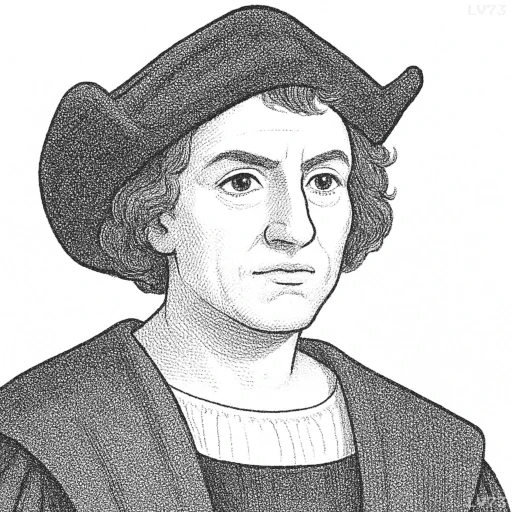“There are trees of a thousand sorts, and all have their several fruits; and I feel the most unhappy man in the world not to know them, for I am well assured that they are all valuable. I bring home specimens of them, and also of the land.”

- August 25th to October 31st, 1451 – May 20th, 1506
- Born in the Republic of Genoa (now Italy)
- Explorer and navigator
table of contents
Quote
“There are trees of a thousand sorts, and all have their several fruits; and I feel the most unhappy man in the world not to know them, for I am well assured that they are all valuable. I bring home specimens of them, and also of the land.”
Explanation
In this quote, Christopher Columbus expresses a profound sense of curiosity and wonder at the biodiversity he encountered in the lands he explored. The mention of “trees of a thousand sorts” highlights the abundance and variety of the natural world that Columbus found in the New World, which contrasted with the European understanding of nature at the time. The phrase “all have their several fruits” emphasizes the potential resources that these new plants might offer, possibly for medicinal, culinary, or economic purposes. Columbus’s desire to understand and collect specimens reflects his belief that the land was a treasure trove of valuable natural resources, which would be beneficial not just for scientific curiosity but for future European exploitation and use.
The second part of the quote, where Columbus says, “I feel the most unhappy man in the world not to know them,” reveals his sense of frustration and incompleteness in his exploration. Despite the riches and wonders surrounding him, he feels a deep personal loss at not fully understanding the potential of the plants and land he encountered. This expresses a combination of scientific curiosity and imperial ambition—his desire to catalog and bring back specimens was not only for intellectual satisfaction but to secure economic value for Spain. By bringing home “specimens of them, and also of the land,” Columbus was ensuring that his discoveries would be documented and, ideally, put to use for the benefit of his sponsors.
In modern terms, this quote illustrates the human impulse to explore and catalog the unknown, a trait that remains strong today in fields like botany, ethnobotany, and environmental science. The idea of bringing back samples to better understand the natural world is echoed in contemporary scientific expeditions. However, it also touches on the exploitative nature of early European exploration, where natural resources were seen not only as objects of curiosity but as commodities to be extracted, controlled, and utilized. In modern times, the practice of collecting and studying plant life continues, but with an increased awareness of the ethical implications—especially in relation to bioprospecting, intellectual property, and the rights of indigenous communities over their land and natural resources.
Would you like to share your impressions or related stories about this quote in the comments section?
